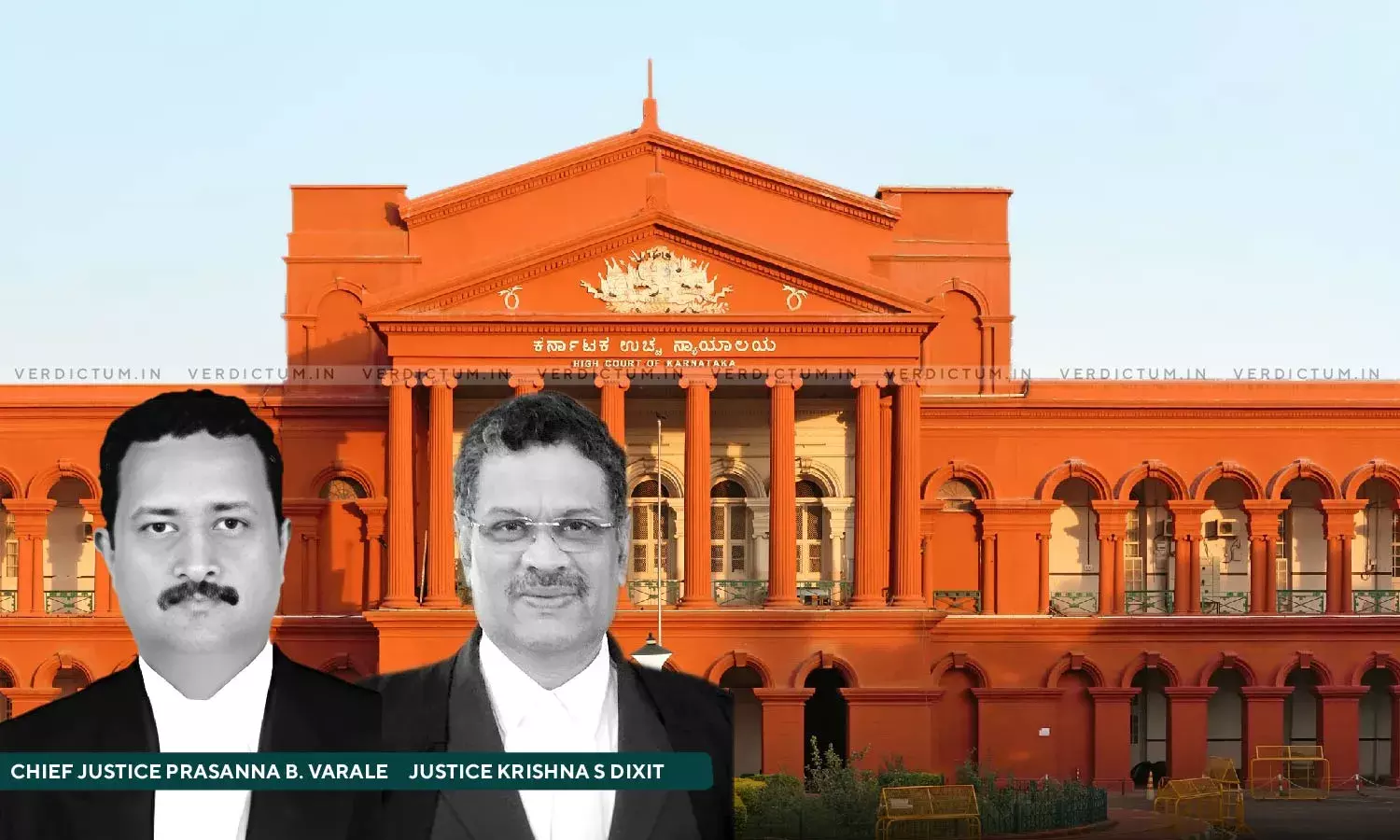Sister Cannot Seek Job On Compassionate Grounds On Death Of Her Brother: Karnataka High Court While Dismissing Plea
The Karnataka High Court has dismissed an appeal filed by a woman claiming a job on compassionate grounds upon the death of her brother on the ground that sister cannot be construed as a member of her brother’s family.
An intra-court appeal challenged the order whereby the appellant’s petition was dismissed and thereby her request for appointment on compassionate ground on account of death of her brother in harness was denied.
A Division Bench comprising Chief Justice Prasanna B. Varale and Justice Krishna S. Dixit held, “The appellant being a sister cannot be construed as a member of the family of the deceased. These Rules are adopted and followed by the respondent-KPTCL and the respondent-BESCOM who happen to be the Government Companies as defined u/s 617 of the erstwhile Companies Act, 1956 and section 2(45) of the Companies Act, 2013. Obviously, they answer the description of 'other authorities' employed in Article 12 of the Constitution of India that defines 'State' for the purpose of Part III, more particularly in the light of Apex Court decision in R.D.SHETTY vs. INTERNATIONAL AIRPORT AUTHORITY OF INDIA, AIR 1979 SC 1628.”
The Bench said that the appointment on compassionate ground is an exception to the general rule of equality in public employment enacted in Articles 14 & 16 of the Constitution.
Advocate M.C. Basavaraju appeared for the appellant while Senior Panel Counsel appeared for the respondents.
In this case, the appellant was a sister of the deceased employee. The counsel for the appellant argued that the impugned order was liable to be set aside inasmuch as she was dependent upon the deceased, as a member of his family and therefore, her candidature for appointment on compassionate ground ought to have been favoured.
The respondents opposed the petition making submission in justification of the order and the reasons on which the same was constructed. It was contended that the compassionate appointment was an exception to the rule of equality in the matter of public employment and therefore, the scheme providing for the same needs to be strictly construed. It was also pointed out that the appellant had not placed on record any material to vouch her dependence on the deceased brother.
The High Court in the above regard observed, “… we are broadly in agreement with the submission made by the learned Sr. Panel Counsel appearing for the respondents. It has been a long settled position of law that only a member of the family of the deceased employee alone can stake his/her claim for appointment on compassionate grounds, that too by producing material to vouch dependence on the employee who died in harness. Rule 2(1)(b) of Karnataka Civil Services (Appointment on Compassionate Grounds) Rules, 1996 as amended on 31.5.2021 defines 'family' …”
The Court said that a sister does not figure in the definition of the said Rule 2(1)(b) of 1996 Rules and hence, the Rules providing for such appointment need to be construed strictly.
“Courts through the process of interpretation cannot expand the contours of a statutory definition. When the Rule Maker in so many words has specified the persons as being the members of family of an employee, we cannot add one to or delete one from the definition of family. An argument to the contrary if accepted, would amount to rewriting the Rule, and therefore, cannot be countenanced”, noted the Court.
The Court concluded that the appellant has placed no material on record to show that she was dependent on the income of her brother at the time of his death in harness and that there is no material to assume that the deceased’s family was in financial distress as would justify the claim for appointment on compassionate ground.
Accordingly, the High Court dismissed the appeal.
Cause Title- Pallavi G.M. v. The Managing Director Karnataka Power Transmission Company Limited (KPTCL) & Ors. (Neutral Citation: 2023:KHC:32211-DB)












